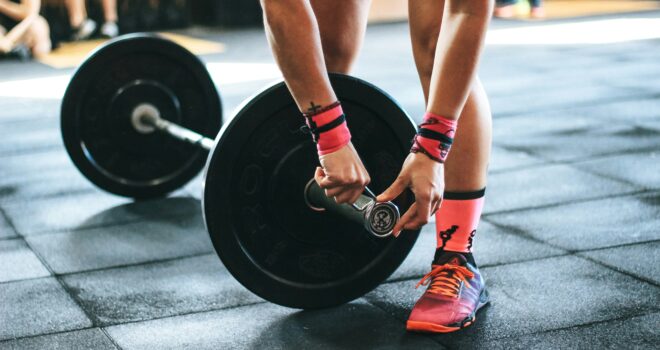Although marred by the anti-Catholic display in the opening ceremony, the 2024 Summer Olympic Games are underway in Paris. While the mockery of The Last Supper has given rise to strong condemnation from religious believers, many Christian athletes hope that through the actual sporting events, these Games can move beyond division and controversy.
Throughout the competition, strength and endurance are put to the test. The rigorous training and dedication of over 10,000 athletes will allow them to “go for the gold.” It will also allow many to live out their faith in their commitment to fitness.
While not everyone can compete at the Olympic level, they can enjoy the challenges of sport and fitness. Saint John Paul II, an accomplished amateur athlete, called us to “Give thanks to God for the gift of sport, in which the human person exercises his body, intellect and will, recognizing the abilities as so many gifts of his creator.”
Exercising the body is the most obvious training that athletes must do. To build strength, dexterity, and perseverance, the body must be honed to perfection and nourished in such a way to ensure health and energy. Athletes must practice skills, push themselves to the limit, and learn to focus on the goals of their sport.
Olympic medalist Katie Ledecky encourages aspiring athletes to “set goals that, when you set them, you think they’re impossible. But then every day you can work towards them, and anything is possible.” With 21 world championships and 7 Olympic gold medals, Ledecky proves that she knows how to make the impossible possible.
Ledecky, a practicing Catholic, depends on more than physical training. She has spoken about the importance of the Hail Mary, which she prays before meets.
Father Joe Fitzgerald, former Olympic Athlete and a Chaplin at the Paris games, stresses the importance of dedication to athletic success. “There were guys with more natural ability than I had,” he states, “but they did not persevere. They gave up.”
The athletic demands of sport and the rigors of the spiritual life have much in common. Too often, both the need to exercise and the need to pray are put aside. It’s more comfortable to avoid the challenges and denials necessary for growth in both sport and faith.
Recognizing the similarity between physical and spiritual growth, John Paul II urged every Christian to “become a strong athlete of Christ.” To do this, the saint said that Christians must “persevere in prayer, be trained in virtue, and follow the divine Master in everything.”
The Rosary, one of the most treasured Catholic devotions, is a prayer practice that can seem as off-putting as getting off the sofa and going to the gym. Like the commitment to physical exercise for the human body, the spiritual practice of the Rosary builds healthy “muscles of the soul.”
This centuries-old prayer, a favorite of Pope Saint John Paul II, calls for a daily dedication to meditate on the mysteries of its five decades. Committing to praying a full Rosary can seem unattainable to some, but, like any sport or skill, the Rosary demands dedication and the development of spiritual strength.
Saint Josemaria Escriva recognized the challenge. He said, “You always leave the Rosary for later, and you end up not saying it at all because you are sleepy.” He also recognized that the Rosary was a “powerful weapon,” and if used, “you’ll be amazed at the results.”
Many believe that the Rosary makes an excellent addition to physical exercise. Praying while jogging or walking combines both the physical and spiritual into one activity. Soulcore, a Catholic fitness apostolate, integrates the Rosary with movement. Through their app, website, and classes, they set out to strengthen both body and soul.
For some who struggle with the endurance and strength to incorporate the Rosary into their daily spiritual exercises, Rosario, an app developed to encourage devotion to this essential prayer, invites Christians to participate in “living” Rosaries. These Rosaries create virtual communities as each of five members prays one decade. These international prayer communities unite Catholics with a shared intention to ensure that a complete Rosary is prayed each day.
In celebration of the training and skills demonstrated at this year’s Olympics, a new twist has been added to complement the existing living Rosaries. The “Rosary Olympics” invite spiritual athletes to join a live Rosary group. In the early days of their training, like runners in a relay, each participant will pray one decade of a daily rosary. Participants will add an additional decade to their training every three days to build strength and dedication. With the Virgin Mary as a coach, spiritual athletes will finish the Rosary Olympics having trained themselves to master the challenge of a full daily Rosary.
In the wake of the blasphemy of the Opening Ceremonies, remember the Rosary as a critical way to make reparation for evil. The value of the Rosary, petitioning to Our Blessed Mother, is undeniable. Saint Padre Pio knew the Rosary to be “the weapon against the evils of the world today.”
Like athletes in their sports, Catholics, with practice and training, can master what seems impossible. Developing will, perseverance, and strength, enables Rosary Olympians to champion what St. Francis de Sales called “the greatest method of praying.” In doing so, they will deepen their connection to Our Lady and make a stand for their faith against the attacks of a secular world.
Author’s Note: To help you pray the Rosary easily, download the free Rosario app, which lets you create or join a Living Rosary group with 4 friends and family members, dividing the meditation of the 5 daily mysteries, so that together you pray a Rosary a day!
Update: Hozana’s Rosary goal for the month of May was greatly exceeded, with over 1.5 million decades prayed using the Rosario app. As part of their ceclebration, Hozana placed over 10,000 flowers at the feet of the Virgin. Many thanks to all who participated in honoring Our Lady.
Photo by Victor Freitas on Unsplash











